By Adrian Moise, Ceo & Cofounder at Aequilibrium
A Summit Where Vision Met Action
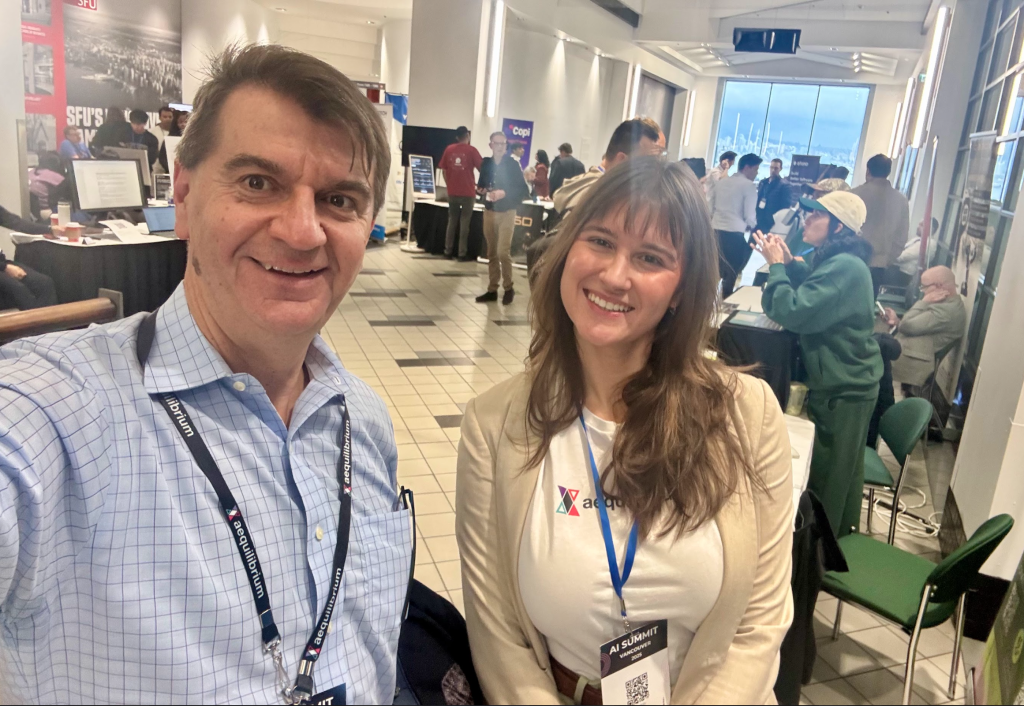
This year’s AI Summit Vancouver 2025 brought together leaders across business, government, and academia to explore one question: How can Canada build an ethical, innovative, and economically sustainable AI ecosystem?
Representing Aequilibrium, our Ceo, Adrian Moise and Product Manager, Isabela Moise joined hundreds of delegates in a day filled with thought-provoking discussions from responsible innovation to commercialization strategies that turn research into impact.
Hosted on the unceded territories of the Coast Salish People, the summit was more than a showcase of technology, it was a call to align progress with purpose.
British Columbia’s AI Momentum: Setting the Stage
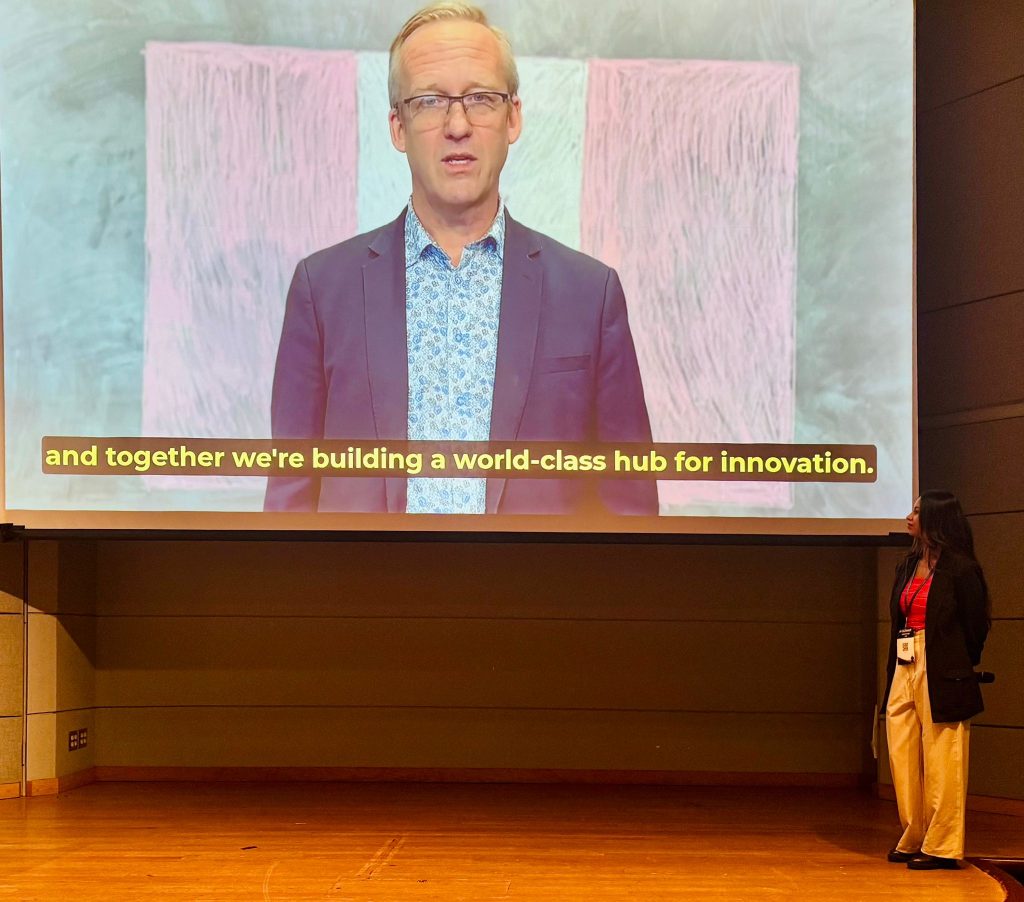
Opening the summit, Hon. Rick Glumac, Minister of State for AI and New Technologies, highlighted how the province is positioning itself as a national AI powerhouse.
“BC is on the cutting edge of one of the most transformative technologies of our time. With over 600 AI companies, double from just two years ago, we’re building a world-class hub for innovation.”
Minister, Rick Glumac
He shared that BC’s AI sector now employs over 180,000 people, contributing significantly to Canada’s projected $187 billion in AI-driven economic growth by 2030.
The government’s investment in 6,000 new tech training seats, Mitacs internships, and scholarships in life sciences reflects a vision where education, research, and industry intersect to create meaningful progress.
From healthcare breakthroughs to next-gen cloud innovation, BC’s AI landscape is no longer emerging; it’s thriving.
Panel Spotlight: What Does Canada’s AI Future Look Like?
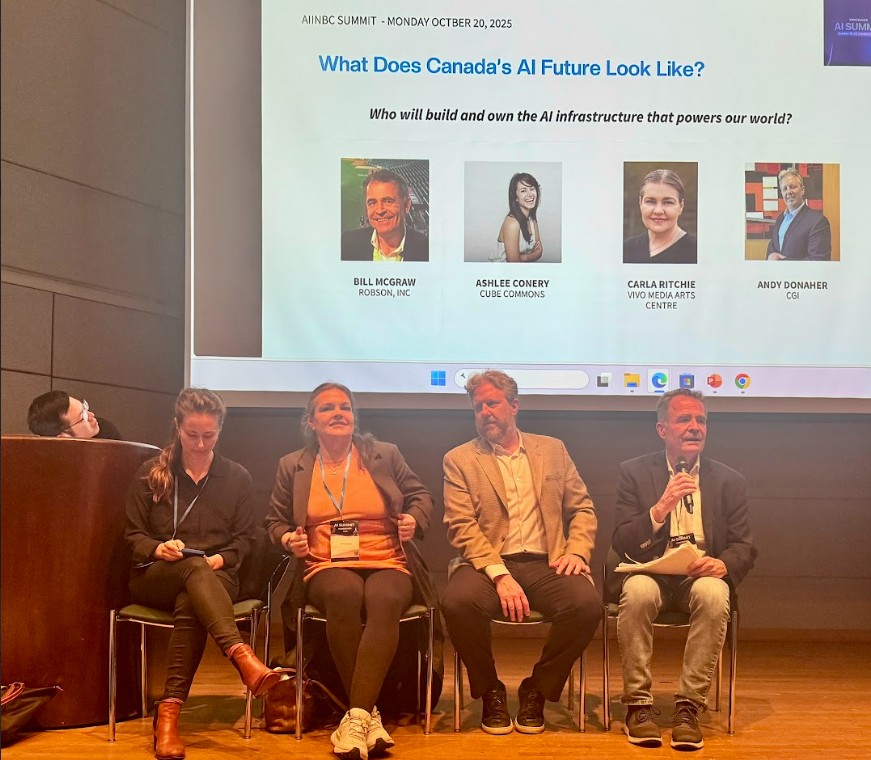
A forward-looking discussion featuring Bill McGraw, Advisor at Robson Inc, Ashlee Conery, Founder of Cube Commons, Carla Ritchie, GM at VIVO Media Arts Centre, and Andrew Donaher, VP at CGI, examined who will build and own the AI infrastructure that powers Canada. The group emphasized data stewardship, governance, and cross-sector collaboration as the foundations for competitiveness, pairing responsible data pipelines with scalable, real-world deployment.
Together, they painted a vision of Canada as a collaborative innovation hub, one that values transparency and responsibility as much as performance.
From ROI to Responsibility: The Banker’s Perspective
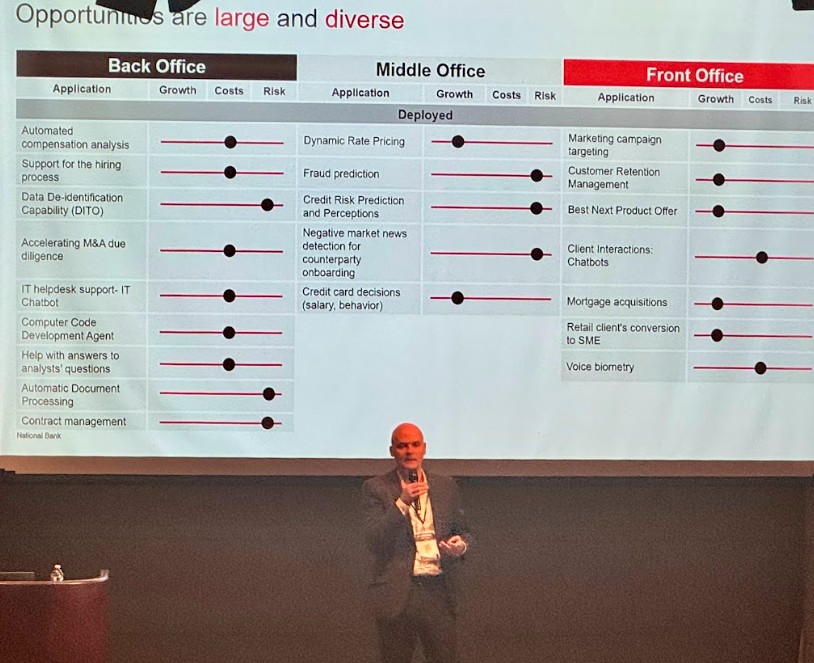
From the world of finance, Julien Crowe, Senior Director at National Bank of Canada offered a pragmatic view on implementing AI at enterprise scale.
“AI success isn’t a question of science, it’s a question of capacity to integrate."
Julien Crowe
Crowe outlined how his bank shifted from research-oriented experimentation to a production-focused strategy, emphasizing that Canadian companies must move beyond proofs of concept and focus on ROI-driven execution.
“We realized that if we treat AI as a lab experiment, it stays one. But when we align it with business goals, it transforms operations."
Julien Crowe
Crowe’s remarks reinforced a central truth: AI strategy must balance innovation and integrity.
His framework, prioritize by measurable ROI, manage risk at the right time, and embrace both legacy and generative AI resonated deeply with business leaders in attendance.
He also cautioned against prematurely applying risk filters before validating a project’s impact.
“If you talk about risk before you understand value, the conversation becomes fear-driven. Bring risk and responsibility closer to production where real data and results exist.”
Julien Crowe
Ethical AI in Healthcare
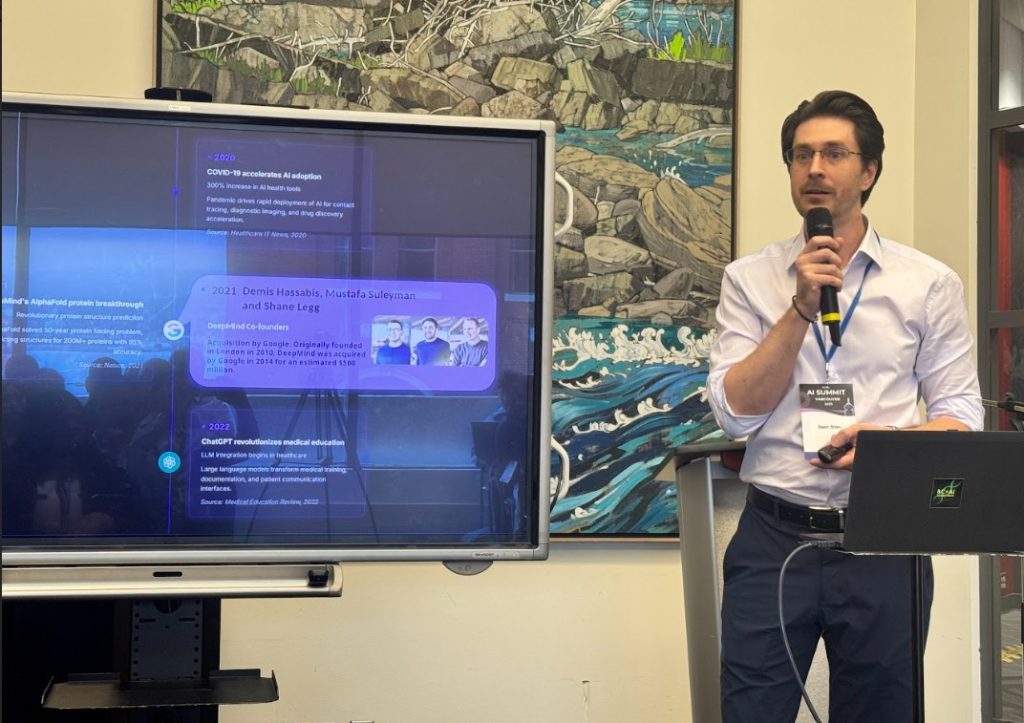
One of the most compelling sessions came from Dean Shev, Decision Support Lead at Fraser Health and Co-Founder & CEO of Virtual Healthcare Technologies, who traced the evolution of artificial intelligence from rule-based systems in the 1970s to today’s neural network-driven models.
Shev highlighted how visionaries like Geoffrey Hinton and Ilya Sutskever laid the groundwork for modern AI, shaping tools like ChatGPT and DeepMind’s AlphaFold. His talk, however, focused less on technological triumphs and more on the ethical dilemmas that accompany them, especially in healthcare.
He shared a recent study showing that when doctors collaborated with AI, diagnostic accuracy improved from 20% to over 80%, but cautioned that such gains come with a new kind of risk.
“AI can enhance human decision-making, but it can’t replace human accountability. Without oversight, we risk turning trust into automation.”
Dean Shev
His message underscored a recurring theme throughout the summit: progress must be paired with responsibility. AI may process billions of data points in seconds, but the human duty to verify, interpret, and empathize remains irreplaceable.
Translating Innovation into Impact: FAST for BC
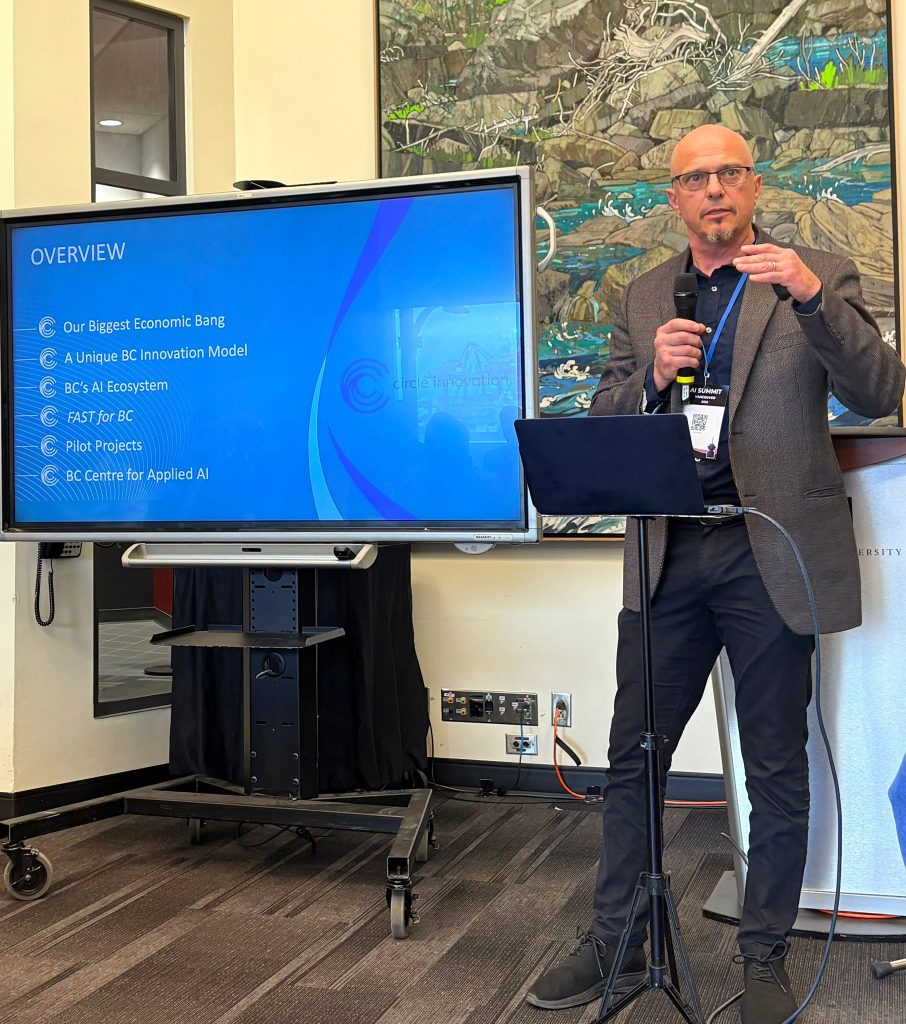
While BC’s ecosystem is rapidly expanding, the challenge lies in turning prototypes into profitable, scalable solutions.
Loki Jorgensen, Executive Director of Circle Innovation, presented a compelling roadmap through FAST for BC—a proposed $10 million, three-year initiative to help small and medium-sized enterprises (SMEs) commercialize AI effectively.
“FAST for BC is about turning brilliant prototypes into thriving businesses. It’s not about more research, it’s about results.”
Loki Jorgensen
The program targets “AI-ready” companies that already have market traction but struggle to integrate AI at scale. Through hands-on technical mentorship, funding support, and rapid commercialization sprints, the initiative aims to move BC’s SMEs from innovation to measurable economic impact.
Jorgensen emphasized that most Canadian companies face barriers not of technology, but of implementation.
“Over half of SMEs have no clear plan for adopting AI; it’s not a lack of talent or tools, it’s a lack of direction.”
Loki Jorgensen
By addressing gaps in productization, reskilling, and access to technical expertise, FAST for BC seeks to unlock the true potential of local AI talent and accelerate adoption across healthcare, natural resources, logistics, and defense.
The Human Cost and Opportunity of AI
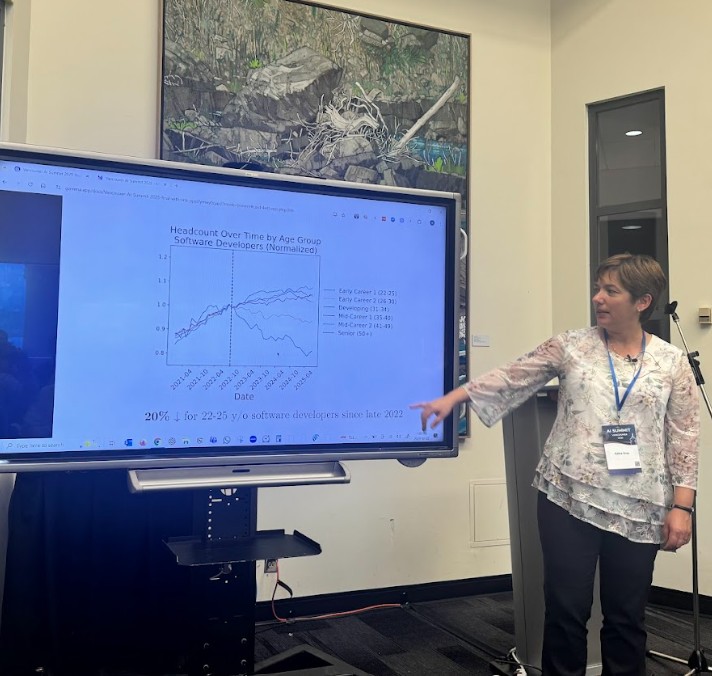
In one of the most emotionally resonant sessions, Adina Gray, Founder of PurpleOwl.AI, explored the human and social dimensions of AI adoption.
Her presentation, “The Human Cost of AI,” examined how automation affects women and early-career professionals groups most vulnerable to technological displacement.
Referencing a Stanford University study, Gray shared that employment for early-career workers in AI-exposed industries has declined by nearly 20% since 2022, while senior professionals have seen increased demand.
“AI should be a job shaper, not a job destroyer. Education can bridge that gap. By normalizing AI literacy early, we empower future leaders to use these tools responsibly, not fear them.”
Adina Gray
Gray advocated for a top-down leadership model in education and policy to make AI adoption equitable. She argued that organizations must not only train for technical fluency but also cultivate ethical awareness.
“AI isn’t cheating, it’s changing how we work. We must model its good use to create a more inclusive, productive future.”
Adina Gray
Her message echoed across the summit: as AI reshapes industries, empathy, awareness, and education must guide its evolution.
Humanizing Sales in the Age of Automation: Diraj Goel’s Vision
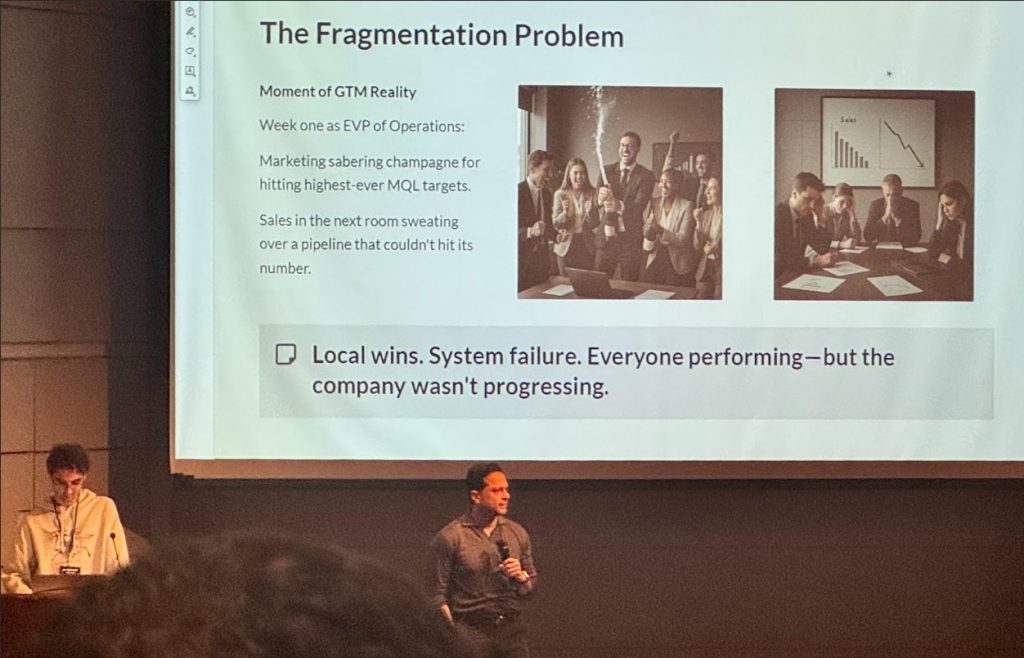
One of the most dynamic sessions came from Diraj Goel, Founder of GetFresh Ventures, a serial entrepreneur known for scaling SaaS companies like Hootsuite and Vision Critical.
Goel’s talk, “B2B Sales in the AI Era,” captured how sales operations are evolving from manual tracking to machine-assisted empathy.
"Your CRM should tell you who to follow up with, not the other way around.”
Diraj Goel
He envisioned a future where AI eliminates administrative friction, freeing teams to focus on what truly matters: relationships.
“AI isn’t replacing humans, it’s enabling them in the moment. The future belongs to teams that use automation not for shortcuts, but for smarter human connection.”
Diraj Goel
He also introduced a forward-thinking role: the GTM AI Engineer, a professional who bridges sales, marketing, and operations through intelligent systems that predict opportunities and remove “human latency.”
Goel’s philosophy aligns with AEQ’s own view of digital empathy, where data empowers, but human trust closes the loop.
From Lab to Launch: Bringing AI Into the Real World
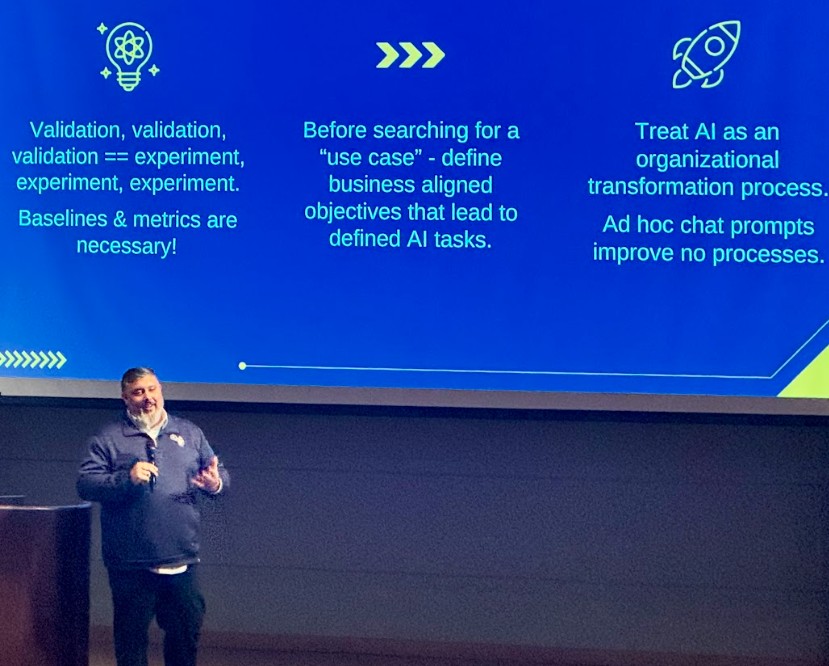
Dr. Benjamin Bengfort, CEO of Rotational Labs, a computer scientist and entrepreneur, brought the discussion down to earth with real-world success stories.
Through five case studies from automated fleet inspections to warehouse security analytics, he illustrated what it takes to move from proof of concept to production-ready deployment.
“Don’t look for AI use cases, start with business objectives and then find where AI can help you deliver them.”
Benjamin Bengfort
He stressed the importance of clean, real-world data, guardrails for privacy, and small, efficient models over massive ones.
“Bigger isn’t always better. The best model is the simplest one that performs the task accurately and responsibly.”
Benjamin Bengfort
Bengfort’s stories underscored a crucial shift: AI success depends not on experimentation, but on execution, how organizations design, deploy, and validate models with clear goals in mind.
Reflections from the AEQ Team
For Aequilibrium, the AI Summit Vancouver 2025 reaffirmed a principle central to everything we do: Technology only creates value when it serves people.
“The future of AI isn’t about replacing people, it’s about empowering them through empathy, ethics, and engineered excellence.”
Adrian Moise, CEO, Aequilibrium
As BC strengthens its role as a leader in applied innovation, AEQ remains committed to helping financial institutions, enterprises, and startups integrate responsible AI into their digital transformation journeys, driving measurable outcomes, trust, and growth.
Closing Thoughts: From Curiosity to Capability
AI Summit Vancouver 2025 wasn’t just about algorithms or automation; it was about alignment. Alignment between innovation and impact, technology and humanity, research and reality.
And as the conversations throughout the day proved, Canada’s AI future won’t be built in isolation, it will be built through partnerships, policy, and shared purpose.





